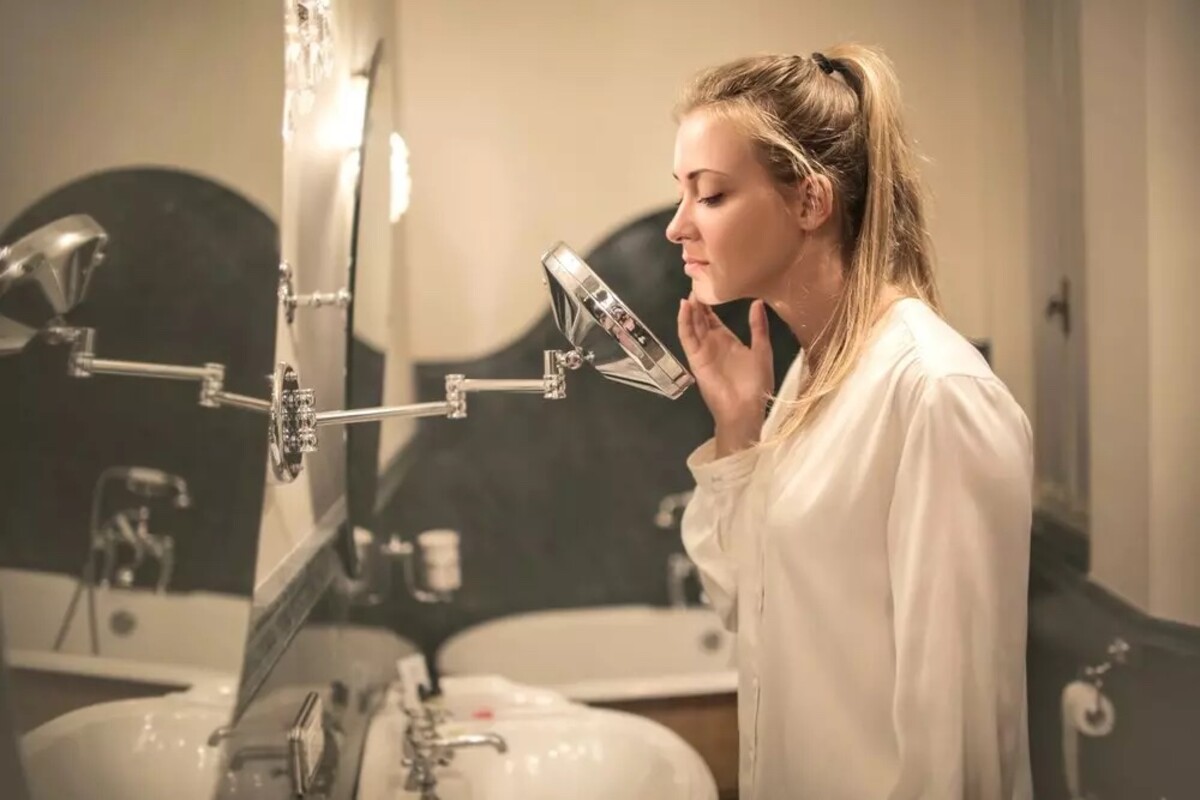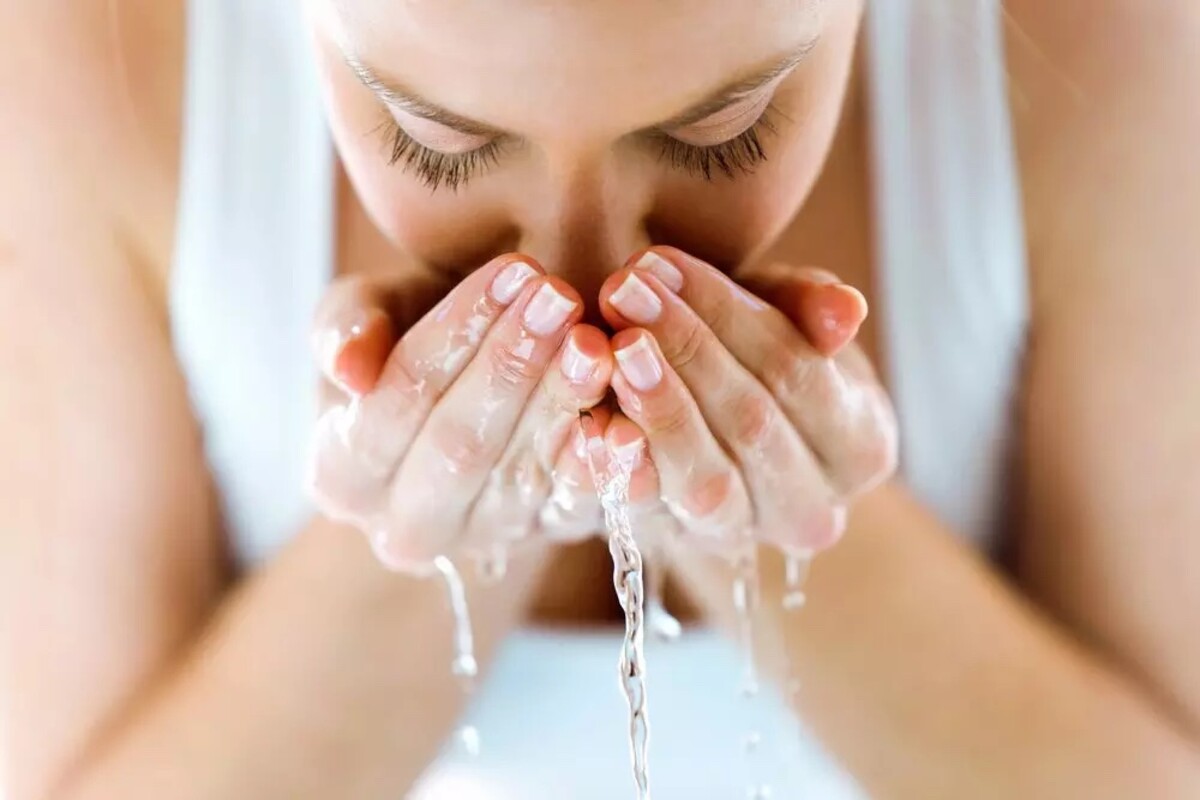We will explain what types of acne exist and how to treat them according to the degree of severity.
Black dots or pimples have troubled most young people. During a thirty-year study, scientists found that the number of cases of acne vulgaris (acne) increases by about half a percent every year.
Although acne is not a life-threatening medical condition, this unpleasant skin disease can seriously affect self-esteem. Do you know why it occurs and how to reduce it? Understanding individual skin needs will help you choose the right care and overcome imperfections.
The right habits will help you reduce rashes
Maybe you think that problematic skin has been "given to you by nature" and nothing can be done about it. Health is greatly influenced by your lifestyle habits, and this also applies to the skin. Do you know which mistakes can complicate your acne treatment?
1. You're picking at it even though you know you shouldn't
You'd heard it wasn't allowed, but it irritated you greatly, that the pimple shone on your face like a beacon. You've almost certainly encountered it, lost patience, and squeezed it out. However, you can harm yourself with "home remedies". For example, you can irritate the rash and make the inflammation worse, release bacteria from the pimple into the environment, which can cause you to break out even more or create scarring.

2. You forget to cleanse properly
Have you ever wondered why you shower or brush your teeth every day? No, right? It is a habit that you have automatically created and you do not question it in any way. You should approach cleaning your skin in the morning and evening the same way.
However, rinsing your face with water is not enough. In the evening, it is necessary to remove all impurities, if you use make-up, first remove your make-up thoroughly. Then clean your face with a gentle but effective product that will not disturb your skin microbiome and skin pH. In the morning, you should rid your skin of sebum and dead cells that have accumulated in the pores during the night.

3. You touch your face too often
Especially during the last two years, you've heard about how much bacteria you have on your hands and why frequent washing is important. Despite the fact that you are as healthy as one can be, frequent touches introduce impurities from the environment into your skin, which can your skin to become more prone to acne.
4. You do not check the ingredients of the products you use
High-quality dermocosmetics can also help you fight acne. Cheap creams often contain alcohol and other ingredients that unnecessarily irritate your skin. Cosmetic products should help you, not make the situation worse. Therefore, choose products with good ingredients and proven clinical results.
Some products for acne-prone skin may contain too high a concentration of active ingredients that dry out the skin too much, causing redness or stinging of the eyes. Try to reach for a combination of keratolytically active substances (those that have the ability to remove dead cells and soften the skin) - salicylic acid and malic acid ester. It will be suitable for you if you suffer from blackheads or mild to moderate acne.
“In some cases of mild to moderate acne, keratolytic skin care may be prescribed as the first choice of treatment before any medical treatment. However, in order for keratolytically active substances to be effective, they must be formulated at a low pH (around 3). Since the skin has a natural pH of 5, products with a higher value cause irritation and discomfort, which leads to poor patient tolerance," explains Michèle Sayag, professor, allergist and director of scientific research for Bioderma.

What causes acne?
You have tens of thousands of small openings on your face - pores, whose task is to excrete sebum, dirt and sweat. Natural sebum helps keep the skin supple and healthy. The problem arises if the pores secrete excessive sebum, become clogged or you dry them unnecessarily. Blemishes or inflammation begin to appear on the skin.
Acne-prone skin can be treated effectively. The first principle that you should not forget is that this type of skin is very sensitive. An incorrectly chosen treatment can irritate the skin and complicate the whole process. If you suffer from acne, you may have several types of rashes on your face, the most common being black and white dots. They are also called comedones and they arise because the pores cannot properly secrete sebum. It then remains blocked under the skin.
Experts refer to blackheads as open comedones. Air has entered the open pores, as a result of which impurities and accumulated sebum oxidize and darken. Whiteheads are closed comedones because the pores are closed. Sebum and impurities remained inside the skin.

Painful and inflammatory forms, which can even leave scars on the skin, are divided into four types - papules, pustules, nodules and cysts. The papules are red and may be tender or even painful to the touch. Pustules look similar to papules, but differ in that they are filled with pus.
Papules and pustules can be treated without complications, serious forms of acne are nodules and cysts. Nodules form under the skin and can be hard to the touch. Cysts are the most serious, they can be several millimeters in size and the inflammation is deep. They are softer to the touch than nodules because they are filled with pus.
In addition to the types of rashes, we divide acne according to the degree of severity on the GEA (Global Evaluation Acne) scale, which was created by the European Academy of Dermatology and Venereology. Each degree of severity has a recommended treatment.
Do you suffer from acne? The journey to healthy skin can be stressful and difficult, but the result will be worth it. First, try to understand the individual needs of your skin so that you can provide it with what it needs. If you do not trust yourself or your acne is serious, it is better to skip self-diagnosis and seek the help of a specialist.





